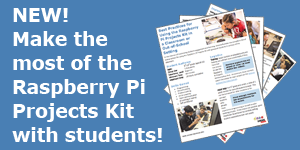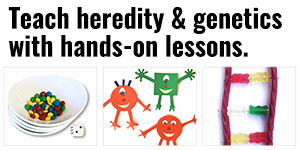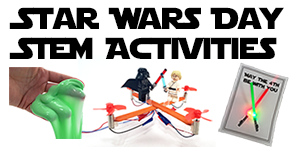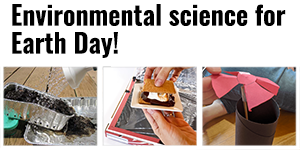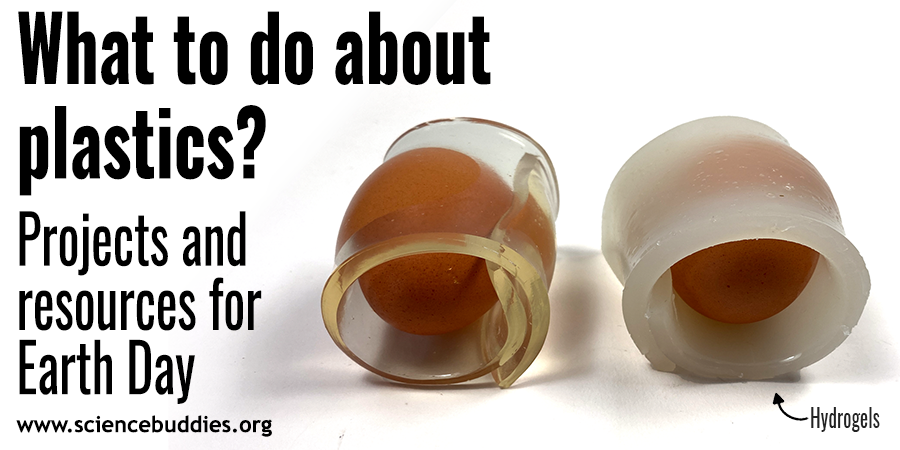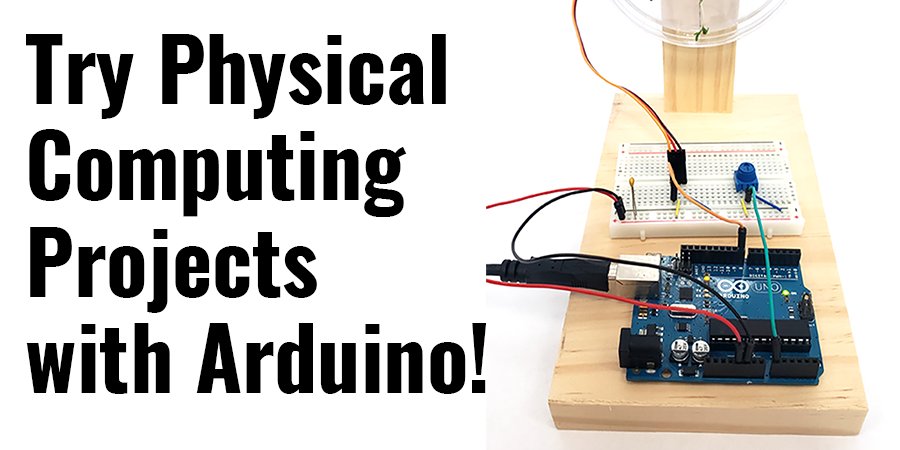Best Practices Document Guides Out-of-School Programs Using Raspberry Pi Projects Kit
The Raspberry Pi Projects Kit provides out-of-school programs with a plug-and-play set of materials and projects that can be used to lead students in engaging creative projects that build computer programming and circuit building skills. A new Best Practices document provides important insight and guidance for out-of-school and school programs using the STEM kit.
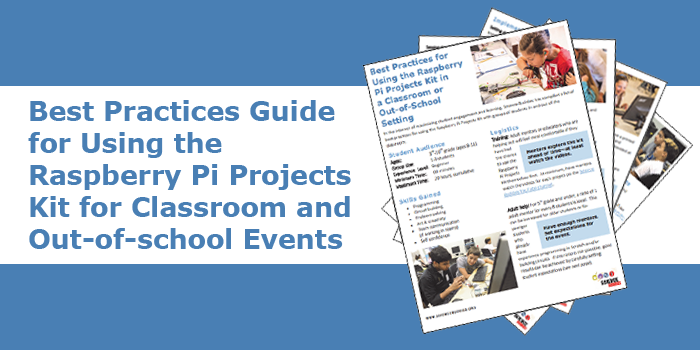
The Raspberry Pi Projects Kit from Science Buddies provides students with everything they need to explore a series of creative projects that blend electronics, computer programming, and the process of "making" things. Following the eight guided projects, students use Scratch on Raspberry Pi to experiment with the addition of different kinds of sensors and circuits to bring real-world creations to life. With the Raspberry Pi Projects Kit, students gain computer programming skills while working on making fun, creative games and individual projects, many of which involve craft- and art-based projects that kids can touch and interact with to see (and hear) the effects of the programming.
By following the Science Buddies project directions and creating the Scratch program as well as building the circuit and the creative or art piece, kids can turn household objects into electronic drums, make fun carnival-style games, design 3D toys, and write cool programs that use real-world input to make something happen. All eight projects involve making interactive creations with electronic components that respond to light, touch, or sound. With this kit, students get to be programmer, engineer, and creator at the same time!
When a student completes one of the Raspberry Pi Projects Kit projects, the results are ones she can immediately see, try, test, and explore. The results of the programming and circuit building light up, make noise, or otherwise respond to input, which is exciting and gives students clear feedback that their code and circuit worked. If something doesn't work, the complete code for the Scratch portion of each project is provided, along with step-by-step illustrations of the circuit. Troubleshooting a project that isn't working is an important skill for all students to practice, and the code and circuits in the Raspberry Pi Projects Kit are short and contained, which makes troubleshooting something students can do without assistance, a process that builds valuable problem solving skills.
The Raspberry Pi Projects Kit is an excellent investment for a student at home who wants to work on a series of projects. With the kit, a student, on her own, can start by setting up the Raspberry Pi (following the setup video from Science Buddies) and quickly get started with the first project—making a musical keyboard. No experience is necessary to succeed with this kit!
Raspberry Pi Projects Kit in Out-of-School Programs
The Raspberry Pi Projects Kit can be a great tool for after-school or out-of-school programs, computer or STEM clubs, and even classroom environments. With a set of Raspberry Pi Projects Kits, an out-of-school program can run workshops or getting started events in which students work on a few introductory projects. With more time available, longer or multi-day events, for example, participants may be able to complete multiple projects from the series and gain computer and engineering skills and confidence in a short span of time. Carefully created to provide a sequential learning experience, students using the Raspberry Pi Projects Kit can move through the series of projects, practicing newly acquired skills and gaining additional ones with each new project.
Over the last year, Science Buddies partners Purdue University's Women in Engineering Program (WIEP) and girlSPARC have run workshops with students using the Raspberry Pi Projects Kit. These partners provided Science Buddies with feedback and results from coordinating, managing, and running out-of-school or school events using the Raspberry Pi Projects Kit.
Thanks to support from Sparkfactor.org, the knowledge and insight gained from Purdue WIEP and girlSPARC events has been compiled into a Best Practices resource designed to help guide program coordinators in planning and holding successful Raspberry Pi Projects Kit events in out-of-school, classroom, or other group settings.
The Best Practices for Using the Raspberry Pi Projects Kit in a Classroom or Out-of-School Setting guide, available online or as a downloadable PDF, summarizes the findings of our year-long testing and research with Purdue WIEP and girlSPARC. This resource contains tips, suggestions, and targeted recommendations regarding group size, number of volunteers, timing, and planning.
Raspberry Pi Projects Kit Resources
To learn more about the Raspberry Pi Projects Kit at Science Buddies, see the following resources:
- Best Practices for Using the Raspberry Pi Projects Kit in a Classroom or Out-of-School Setting
- Raspberry Pi Projects Kit
- The Girl Factor: Creative Code and Computer Programming (success story)
- Creative Raspberry Pi Projects for Beginners
- Raspberry Pi Projects Kit playlist (YouTube)
- Do Even More with Your Raspberry Pi Projects Kit
- Wire Some Trick-or-Treat or Light-up Fun with Scratch and Raspberry Pi (student success story)
- Light Up the Season with Computer Science Exploration
- Program Summer with Cool Computer Code
The Best Practices resource was developed with support from Sparkfactor.org.
Sparkfactor.org is the nonprofit division of Sparkfactor Design. In keeping with our Maker roots, our programs center around technological and philanthropic innovation and STEM Education for underprivileged communities.
Raspberry Pi is a trademark of the Raspberry Pi Foundation.
Categories:
You Might Also Enjoy These Related Posts:
- Spring Science Projects: 26 Science Experiments for Spring
- 6 Picks for St. Patrick's Day STEM
- Why Do Science Projects: Elevate Your Science Classroom: Taking Independent Student Science Projects to the Next Level
- Free science project support in the Ask an Expert forums
- Ahead of the Curve: A Science Teacher's Guide to Proactive Science Project Planning
- 2024 Rubber Band Car Engineering Challenge—10 Steps to Success
- Why Integrate Science Projects in the Classroom—A Teacher's Perspective
- 10 Reasons to Do the Rubber Band Car Engineering Challenge


